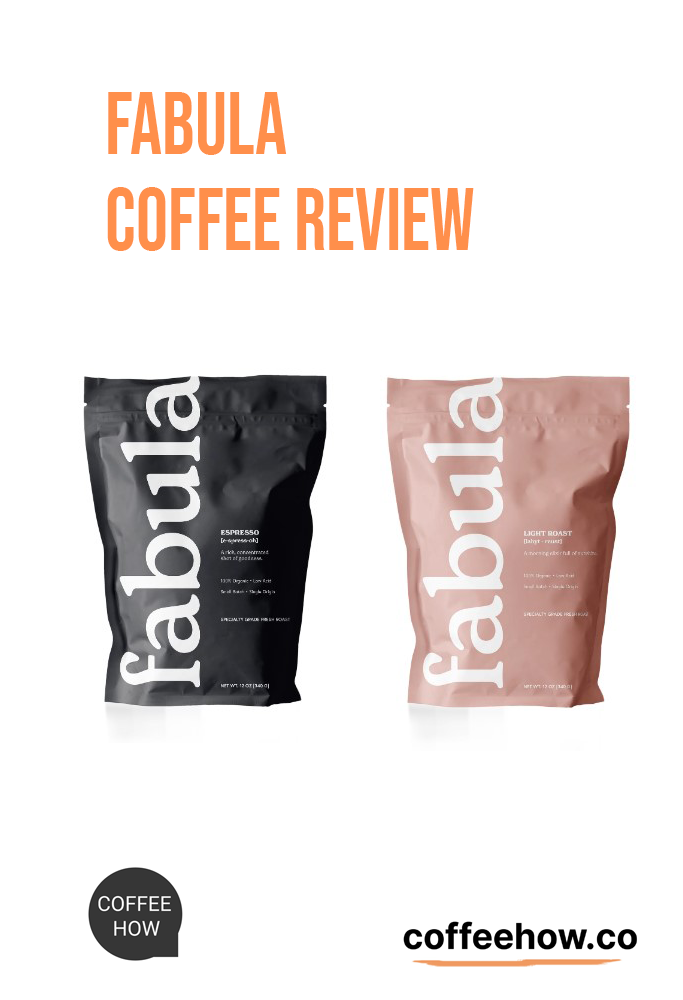fbq('trackCustom', 'view_shop_coffee'); var trackEvent = 'shop_coffee'; It is not a secret, a little of everything…
If we had to pick one word to describe Fabula coffee, it would be: smooth.
Fabula focuses on delivering low-acid coffee that is gentle on the stomach but still tastes fantastic. You may know people who had to give up coffee due to digestive sensitivities.
With Fabula coffee, some of these people we able to reunite with their beloved brew. Even if you don’t have any problems with reflux or acid indigestion, you still might love Fabula for its taste.
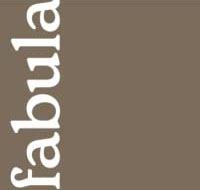
The founders of Fabula were impressed after tasting pure, clean coffee in Peru. They tried to find something similar in the U.S. When they couldn’t, they decided to start their own company.
Their mission was to bring pure, organic coffee to discriminating coffee drinkers.
The founders were not only committed to excellent coffee. They were also committed to sustainable practices that were good for the earth. They partner with small, organic farmers who harvest shade-grown, high-elevation coffee.
But Fabula takes it a step further with a commitment towards global reforestation by partnering with the non-profit organization One Tree Planted.
Every step of the process, from plant to cup, is monitored to be free of mold, pesticides, and other harmful substances. Fabula is happy to send you the testing results if you ask.
Fabula’s staple coffees come from Mexico, Peru, or Colombia. (Occasionally, they offer coffee from other growing regions such as Africa, Asia, or Oceania.)
While the coffees are limited in terms of origins, they present the best characteristics offered by coffee from the Americas. Chocolate or cocoa notes, smooth and clean taste, and a medium body were all noted in these brews.
One thing Fabula does very well is matching a coffee to a roast level that best suits it.
The main offerings are light, medium, dark, and espresso roast.
The light roast is from Mexico, the medium roast is from Peru, the dark roast is also from Peru, and the espresso roast is from Colombia.
You can also get Turkish coffee, a medium-dark roast from Colombia that is ground almost to a powder.

For more variety, check out the Coffee of the Month, Roaster’s Special, or other seasonal offerings. These limited editions feature coffee originating from Africa, Asia, or elsewhere. Fabula also offers a coffee specifically crafted and ground to perform best in a French press or as a cold brew.
Shying away from caffeine? You can get medium roast half-caf or decaf coffees in medium or dark roast.
Fabula also offers a range of flavored coffees. You can get standards like hazelnut and vanilla, or you can go for a seasonal flavor.
Most of the coffee from Fabula is available as whole bean or pre-ground. But they haven’t left the single-serve coffee drinkers out. Many of these coffees are available in K-cups. The K-cups are made from paper and other compostable materials. For freshness, each cup is sealed in an environmentally-friendly, air-tight wrapper.
One drawback of Fabula Coffee is that there is no roast date on the bag. Many high-end roasters do print the roast date. Having said that, we can attest that the beans were very fresh. The freshness was evident in the vigorous bloom. Still, we like to know exactly how fresh it is.

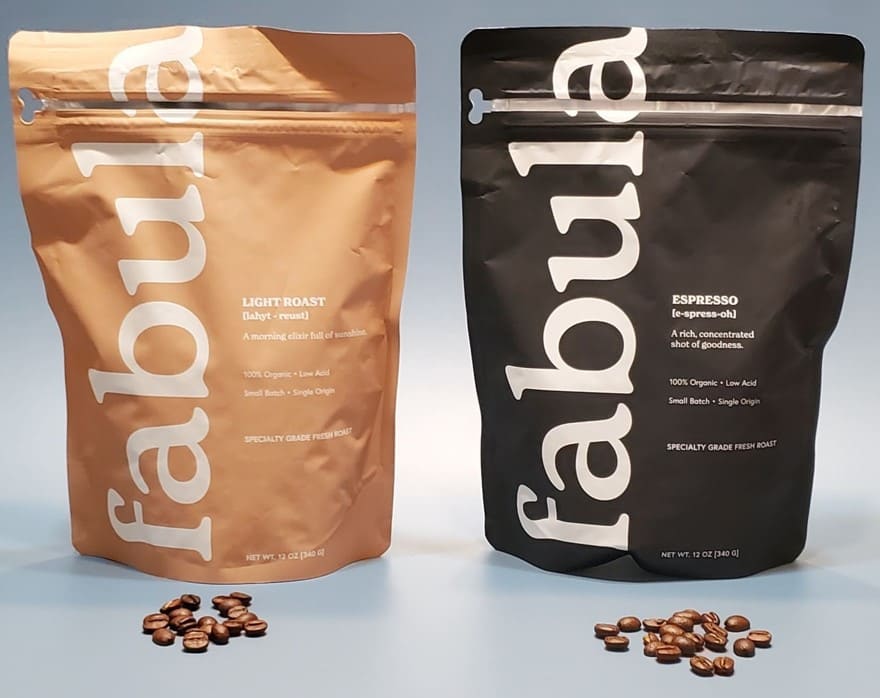
We tried two different varieties of Fabula coffee: light roast and espresso roast.
Both coffees had a noticeable smoothness. We offered a taste to someone who regularly drinks grocery store coffee. When we asked if they noticed a difference, the response was “smooth.”
Following are our findings from trying these coffees.

Fabula coffee comes in a well-sealed, 12-ounce bag with a one-way valve.
The packaging is simple, attractive, and easy to open with a pull strip.
The bags feel sturdy, so they won’t be prone to breaks or tears that let oxygen in. The bags are resealable so that the beans will stay fresh.
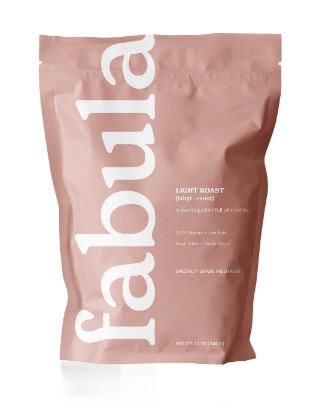
$
Check PriceOrigin: Mexico
Fragrance: Mild, stone fruit
Aroma (per Fabula website): Brown sugar, sweet almonds, baked apple, sweet berries
Flavor notes (per Fabula website): Red Apple, Sugary Sweet, Mixed Nuts, Cocoa
Recommended brew method: Pour over
Upon opening the bag, I was not greeted with a strong fragrance. It had light, stone fruit notes along with a hint of chocolate. The brown sugar notes came forward in the aroma when brewed, but the scent was very light. The beans themselves were considerably darker than I expected.
 Pour Over
Pour OverRatio: 1:16
As expected, this light roast performed well as a pour-over. The bloom was aggressive, with large bubbles and foam attesting to the coffee’s freshness. The flavor was mild but had a very pleasant taste with notes of cocoa and a slight sweetness. It had a noticeably clean aftertaste. In the words of an un-initiated tester, “it hits hard then goes away.” It was an enjoyable, everyday type of coffee with a medium body.
Ratio: 1:12
This stronger brew brought out more of the cocoa notes and more sweetness at the end. Any ratio between the two can produce an enjoyable brew, depending on how strong you like your coffee.
 French Press
French PressRatio: 1:12
Because it was a light roast, we increased the amount of coffee to brew with a French Press. It did very well with this brew method, which brought out more sweetness and more of the cocoa and nutty notes. The extra body that a French press gives gave it a pleasing mouthfeel.
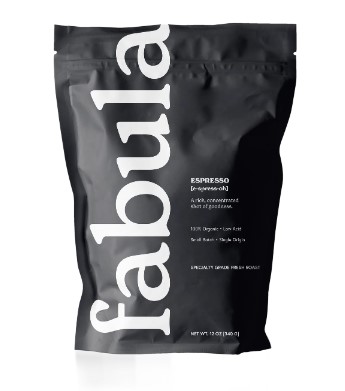
$
Check PriceOrigin: Colombia
Fragrance: Chocolate, stone fruits, earthy
Aroma (per Fabula website): Raisin, dark fruits, plum, nuts, brown sugar
Flavor notes (per Fabula website): Prune, brown sugar, mild citrus tones, caramel and praline flavors, dark berries
Recommended brew method: Cold brew, espresso
The beans are medium-dark without any oiliness. These had considerably more fragrance than the light roast. When brewed, it had more aroma than the light. The single-most characteristic of all brew methods was smoothness.
 Pour Over
Pour OverRatio: 1:16
These beans did not do well as a pour-over. The brew had a predominant dark chocolate taste but was not bitter. It lacked the complexity of flavor you look for in a pour-over coffee. With a bit of milk and chocolate added, it was enjoyable.
 French Press
French PressRatio: 1:12
This espresso roast did very well in the French press. It was very smooth and had a pleasingly rich body. It had a nice roasty flavor, and the stone fruit and caramel notes came forward. It was a very satisfying cup of coffee.
 Cold Brew
Cold BrewRatio: 1:8 as brewed (12 hours on the countertop); diluted to 1:16 to drink
Cold brew is the way to go if you want the smoothest drink with very low acidity. I liked this better than the cold brew offered at the local coffee shop. The dark chocolate notes were prominent. This brew stood up very well to milk. It ended on a slightly sweet note with a clean aftertaste.
 Espresso
EspressoRatio: 1:2
As you would expect, this coffee did exceptionally as an espresso. It was smooth and sweet and held its flavor even as a latte.

Caffeine used to be blamed when coffee caused upset stomachs. But now we know three things can contribute to tummy upset when you drink coffee: caffeine, acids, and additives.
How can you reduce stomach problems?
You could reduce your overall caffeine intake. But we won’t talk about that here because, well, we need it!
What about additives?
Milk, sugar, artificial sweeteners, and creamers can all cause stomach problems for some people. Try switching to non-dairy additives like almond or soy milk if you experience stomach problems.
Ultimately, this is your choice. Just know that it may not be the coffee itself to blame if you feel uncomfortable after drinking coffee.
For this article, we’re most concerned about acid when it comes to stomach upset. When you consume coffee acids, it increases your stomach acid production. That’s what leads to reflux and other issues. By lowering the amount of coffee acids in your cup, you can reduce stomach problems.
Switching to brew methods that reduce acidity, such as cold brewing, can help.
Switching to coffees that are low in acid will also help.
Have you ever left coffee grounds in your automatic drip brewer for a couple of days and returned to find it growing mold?
Like most agricultural products, mold can develop before or after the coffee harvest. Even if you can’t see it, it could be there.
Sure, some molds are beneficial. However, mold produces mycotoxins, and mycotoxins pose a health risk. The World Health Organization (WHO) reports that mycotoxins can cause a whole host of health problems, including immune deficiencies and cancer.
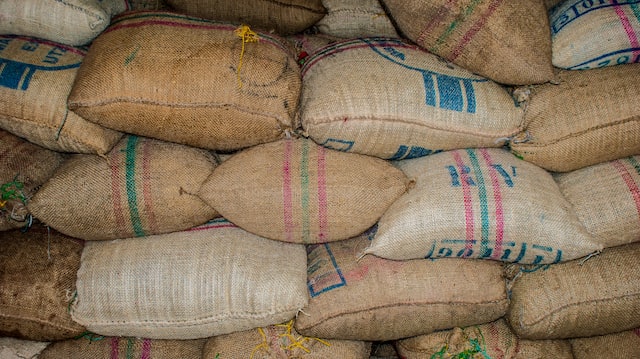
The presence of these mycotoxins on coffee, particularly Ochratoxins-A, is a concern in food safety. While the roasting process can help, these mycotoxins do survive and can be detectable in the brew of some coffee.
Because of the health risk, coffee crops undergo testing regularly. But there is an allowable limit on how much of this harmful substance is allowed in your food.
So, you have to ask yourself, what is an acceptable limit?With Fabula coffee, you can rest easy knowing that it is certified mycotoxin-free. They back this claim with lab tests to prove it.

Why should you try Fabula Coffee?
If you’ve had to give up coffee because it hurts your stomach, all may not be lost. Many people have been able to renew their habit with low-acid coffee like Fabula. In our opinion, it’s definitely worth a shot.
